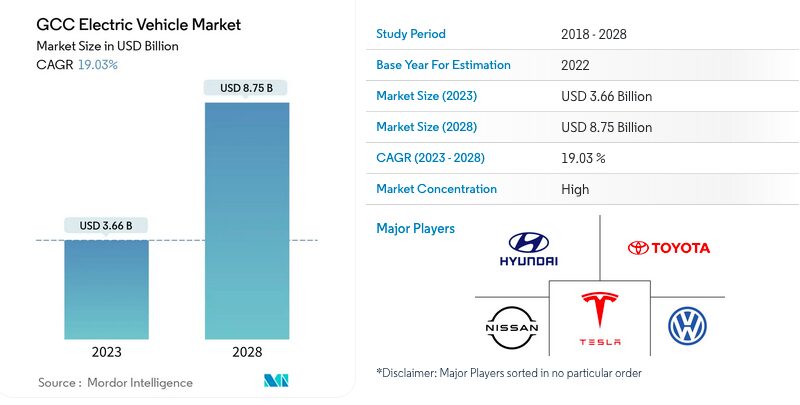The Future of EV Charging in the Gulf Countries
EVKSA

The future of electric vehicle (EV) charging in the Gulf Cooperation Council (GCC) is bright, with governments and businesses investing heavily in infrastructure and technology. The region is well-positioned to become a global leader in EV adoption, thanks to its abundant renewable energy resources and strategic location.
Here are some of the key trends that are shaping the future of EV charging in the GCC:
- Government support: GCC governments are committed to promoting the adoption of EVs and have introduced a number of supportive policies, such as subsidies, tax breaks, and preferential parking. For example, Saudi Arabia has set a target of having 30% of its vehicles electric by 2030, and the UAE is aiming to have 42,000 EVs on its roads by 2030.
- Private sector investment: Private companies are also investing heavily in EV charging infrastructure in the GCC. For example, Dubai Electricity and Water Authority (DEWA) has announced plans to install 10,000 EV charging stations across the emirate by 2030.
- New technologies: New technologies are emerging that are making EV charging faster, more convenient, and more affordable. For example, ultra-fast chargers can now top up an EV battery in just a few minutes.
- Smart charging: Smart charging solutions are being developed that can help to optimize the use of EV charging infrastructure and reduce costs. For example, smart chargers can be used to charge EVs during off-peak hours when electricity is cheaper.
These trends are expected to drive significant growth in the EV charging market in the GCC in the coming years. A recent report by Mordor Intelligence predicts that the GCC EV charging market will grow at a CAGR of 27.3% from 2022 to 2028.
Here are some of the specific ways in which EV charging in the GCC is expected to evolve in the future:
- More charging stations: The number of EV charging stations in the GCC is expected to increase significantly in the coming years. This will be driven by both government and private sector investment.
- Faster charging: New ultra-fast charging technologies will make it possible to charge EVs in just a few minutes. This will help to address one of the main concerns of potential EV buyers, which is the time it takes to charge an EV.
- More convenient charging: EV charging will become more convenient in the future with the development of smart charging solutions. For example, smart chargers will be able to charge EVs during off-peak hours and automatically adjust the charging rate based on the battery level.
- More affordable charging: The cost of EV charging is expected to come down in the future as battery technology improves and the cost of renewable energy decreases. This will make EVs more affordable to operate and maintain.
The future of EV charging in the GCC is very promising. With the support of governments and businesses, the region is poised to become a global leader in EV adoption.
In addition to the above, here are some other specific initiatives that are being undertaken in the GCC to promote EV charging:
- Saudi Arabia: Saudi Arabia is investing heavily in EV charging infrastructure as part of its Vision 2030 plan. The kingdom has partnered with a number of companies to develop and deploy EV charging stations across the country.
- UAE: The UAE is also investing heavily in EV charging infrastructure. The country has set a target of having 10,000 EV charging stations by 2030. The UAE is also home to the world's largest solar-powered EV charging station.
- Qatar: Qatar is also investing in EV charging infrastructure as part of its National Vision 2030 plan. The country has partnered with a number of companies to develop and deploy EV charging stations across the country.
- Kuwait: The Kuwait Public Authority for Housing and Urban Development (PAHW) is installing EV charging stations in all new public housing projects.
- The Kuwait Oil Company (KOC) is installing EV charging stations at its petrol stations.
- The Kuwait Ports Authority (KPA) is developing an "EV City" that will include a number of EV charging stations.
- A number of private companies, such as KEC and Zain, are installing EV charging stations at their offices and other locations.
These initiatives are expected to make EV charging more accessible and affordable in the GCC, and to help to accelerate the adoption of EVs in the region.
The GCC Electric Vehicle Market size is estimated at USD 3.66 billion in 2023, and is expected to reach USD 8.75 billion by 2028,
growing at a CAGR of 19.03% during the forecast period (2023-2028). The
automotive industry in the GCC region is majorly dependent on
conventional internal combustion engines
